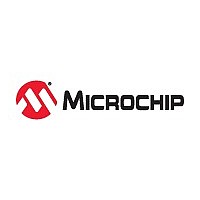PIC17C756A-33/L Microchip Technology Inc., PIC17C756A-33/L Datasheet - Page 46

PIC17C756A-33/L
Manufacturer Part Number
PIC17C756A-33/L
Description
68 PIN, 32 KB OTP, 902 RAM, 50 I/O
Manufacturer
Microchip Technology Inc.
Datasheet
1.PIC17C756A-33L.pdf
(304 pages)
Specifications of PIC17C756A-33/L
A/d Inputs
12-Channel, 10-Bit
Cpu Speed
8.25 MIPS
Eeprom Memory
0 Bytes
Input Output
52
Interface
I2C/SPI/USART
Memory Type
OTP
Number Of Bits
8
Package Type
68-pin PLCC
Programmable Memory
32K Bytes
Ram Size
902 Bytes
Speed
16 MHz
Timers
2-8-bit, 2-16-bit
Voltage, Range
3-5.5 V
Lead Free Status / Rohs Status
RoHS Compliant part
Available stocks
Company
Part Number
Manufacturer
Quantity
Price
Company:
Part Number:
PIC17C756A-33/L
Manufacturer:
Microchip Technology
Quantity:
10 000
Part Number:
PIC17C756A-33/L
Manufacturer:
MICROCHIP/微芯
Quantity:
20 000
Part Number:
PIC17C756A-33/L-G
Manufacturer:
MICOROCHIP
Quantity:
20 000
- Current page: 46 of 304
- Download datasheet (6Mb)
PIC17C7XX
7.2
Data memory is partitioned into two areas. The first is
the General Purpose Registers (GPR) area, and the
second is the Special Function Registers (SFR) area.
The SFRs control and provide status of device opera-
tion.
Portions of data memory are banked, this occurs in
both areas. The GPR area is banked to allow greater
than 232 bytes of general purpose RAM.
Banking requires the use of control bits for bank selec-
tion. These control bits are located in the Bank Select
Register (BSR). If an access is made to the unbanked
region, the BSR bits are ignored. Figure 7-5 shows the
data memory map organization.
Instructions MOVPF and MOVFP provide the means to
move values from the peripheral area (“P”) to any loca-
tion in the register file (“F”), and vice-versa. The defini-
tion of the “P” range is from 0h to 1Fh, while the “F”
range is 0h to FFh. The “P” range has six more loca-
tions than peripheral registers, which can be used as
General Purpose Registers. This can be useful in some
applications where variables need to be copied to other
locations in the general purpose RAM (such as saving
status information during an interrupt).
The entire data memory can be accessed either
directly, or indirectly (through file select registers FSR0
and FSR1) (see Section 7.4). Indirect addressing uses
the appropriate control bits of the BSR for access into
the banked areas of data memory. The BSR is
explained in greater detail in Section 7.8.
DS30289B-page 46
Data Memory Organization
7.2.1
All devices have some amount of GPR area. The GPRs
are 8-bits wide. When the GPR area is greater than
232, it must be banked to allow access to the additional
memory space.
All the PIC17C7XX devices have banked memory in
the GPR area. To facilitate switching between these
banks, the MOVLR bank instruction has been added to
the instruction set. GPRs are not initialized by a Power-
on Reset and are unchanged on all other RESETS.
7.2.2
The SFRs are used by the CPU and peripheral func-
tions to control the operation of the device (Figure 7-5).
These registers are static RAM.
The SFRs can be classified into two sets, those asso-
ciated with the “core” function and those related to the
peripheral functions. Those registers related to the
“core” are described here, while those related to a
peripheral feature are described in the section for each
peripheral feature.
The peripheral registers are in the banked portion of
memory, while the core registers are in the unbanked
region. To facilitate switching between the peripheral
banks, the MOVLB bank instruction has been provided.
GENERAL PURPOSE REGISTER
(GPR)
SPECIAL FUNCTION REGISTERS
(SFR)
2000 Microchip Technology Inc.
Related parts for PIC17C756A-33/L
Image
Part Number
Description
Manufacturer
Datasheet
Request
R

Part Number:
Description:
Manufacturer:
Microchip Technology Inc.
Datasheet:

Part Number:
Description:
Manufacturer:
Microchip Technology Inc.
Datasheet:

Part Number:
Description:
Manufacturer:
Microchip Technology Inc.
Datasheet:

Part Number:
Description:
Manufacturer:
Microchip Technology Inc.
Datasheet:

Part Number:
Description:
Manufacturer:
Microchip Technology Inc.
Datasheet:

Part Number:
Description:
Manufacturer:
Microchip Technology Inc.
Datasheet:

Part Number:
Description:
Manufacturer:
Microchip Technology Inc.
Datasheet:

Part Number:
Description:
Manufacturer:
Microchip Technology Inc.
Datasheet:











